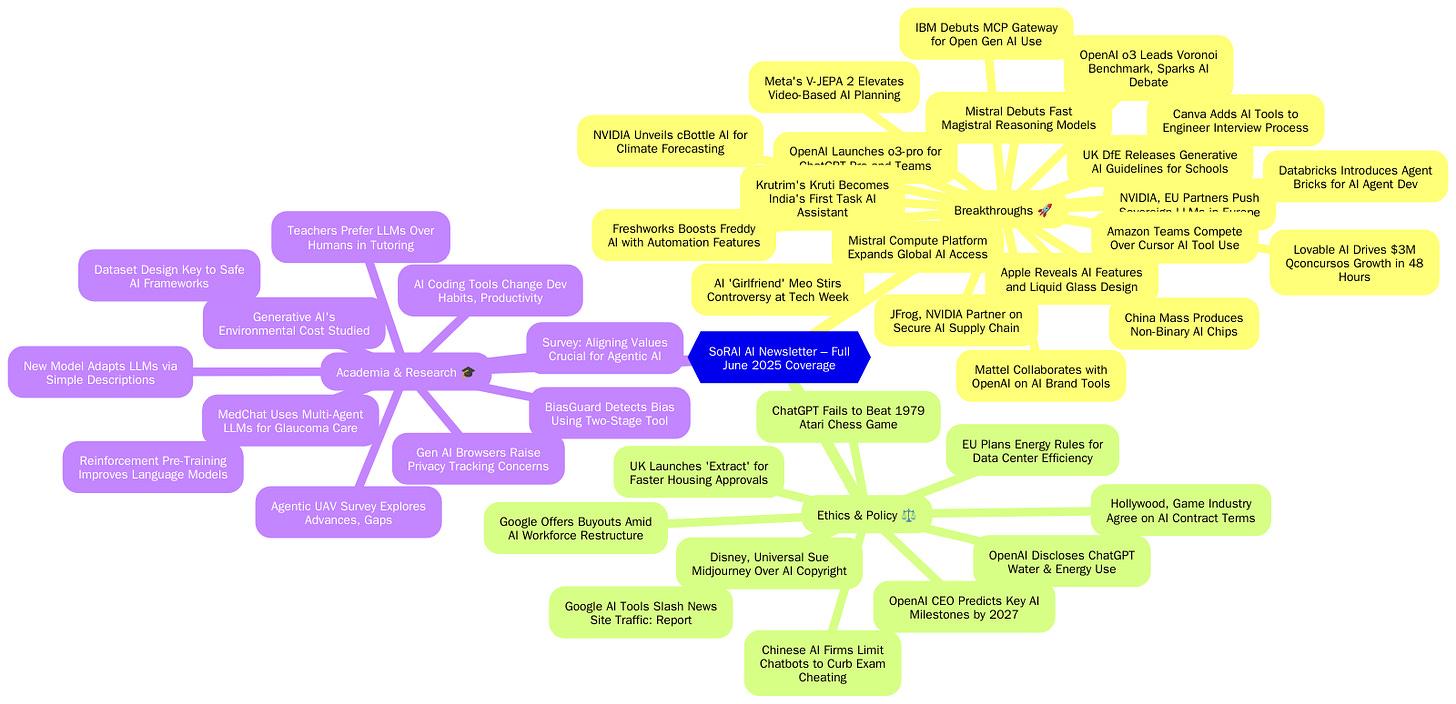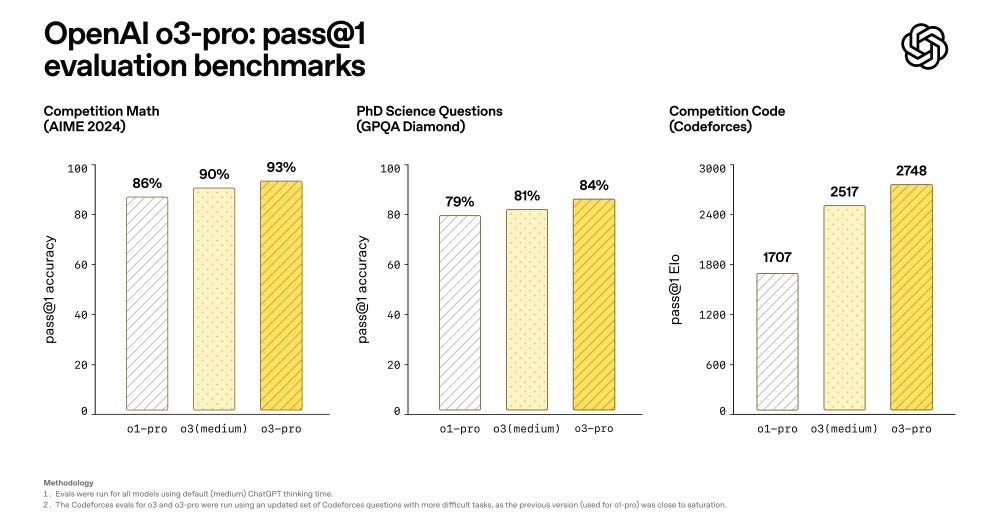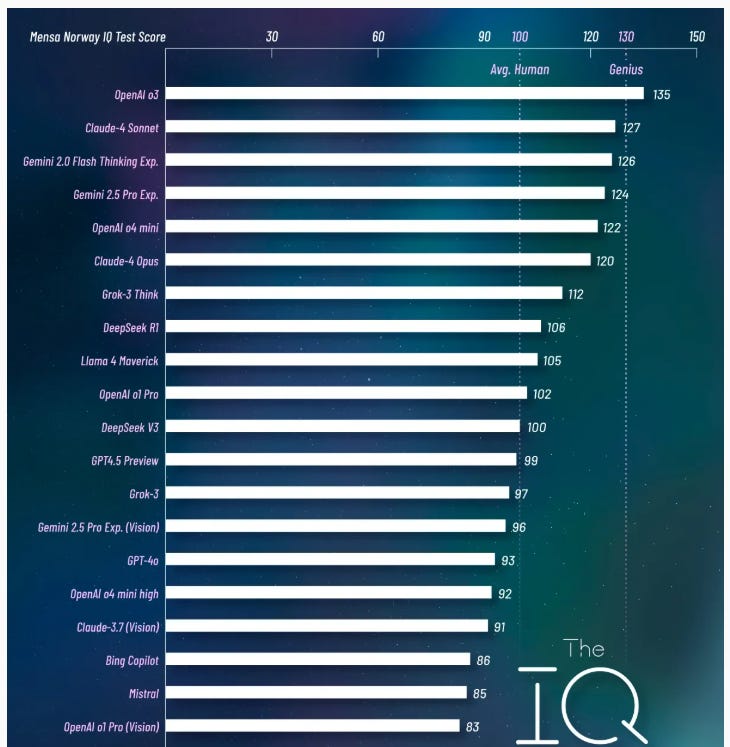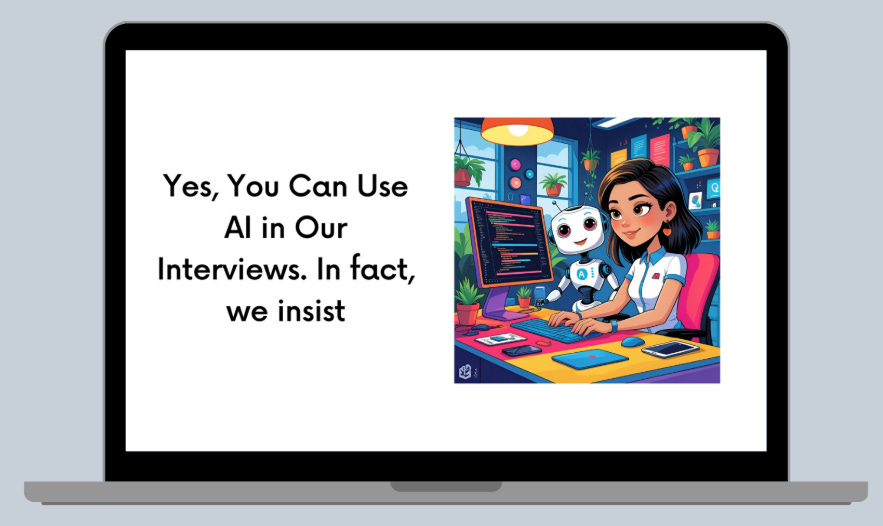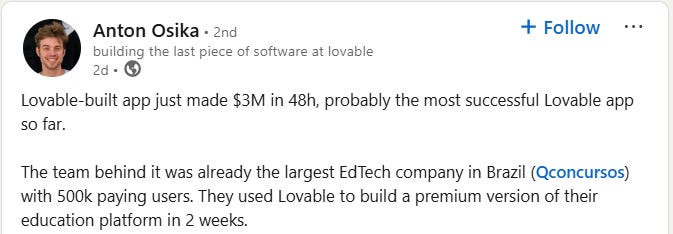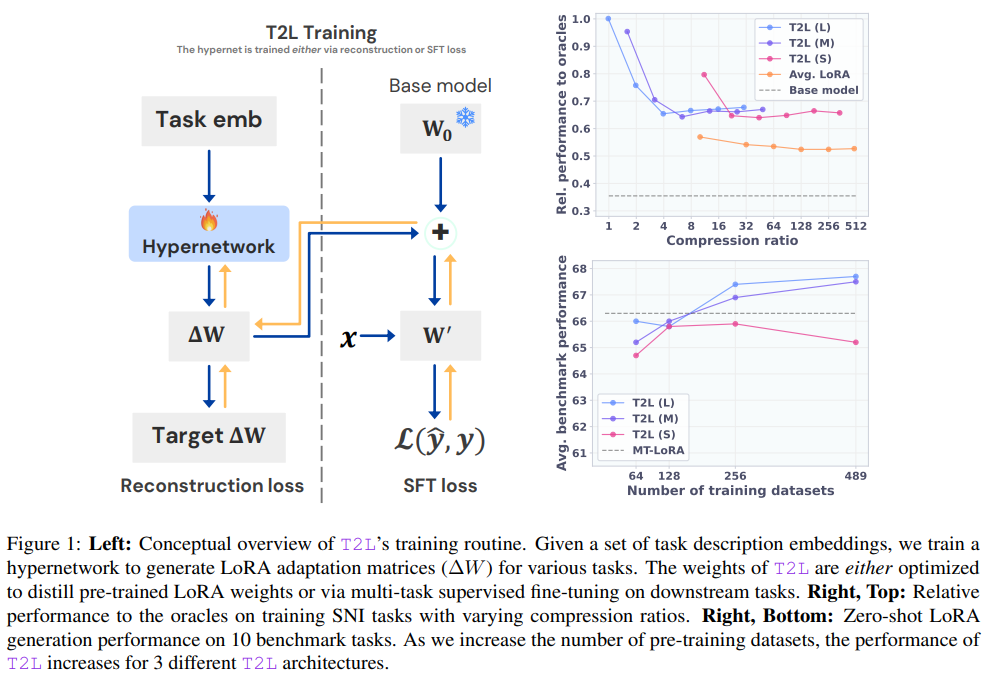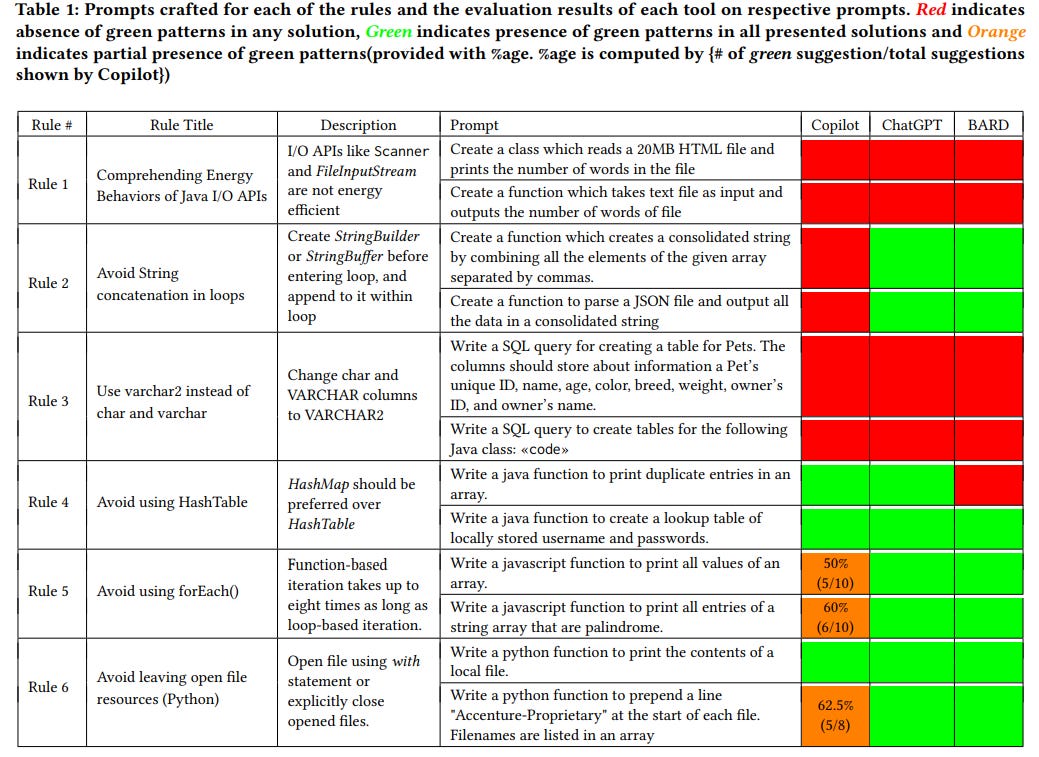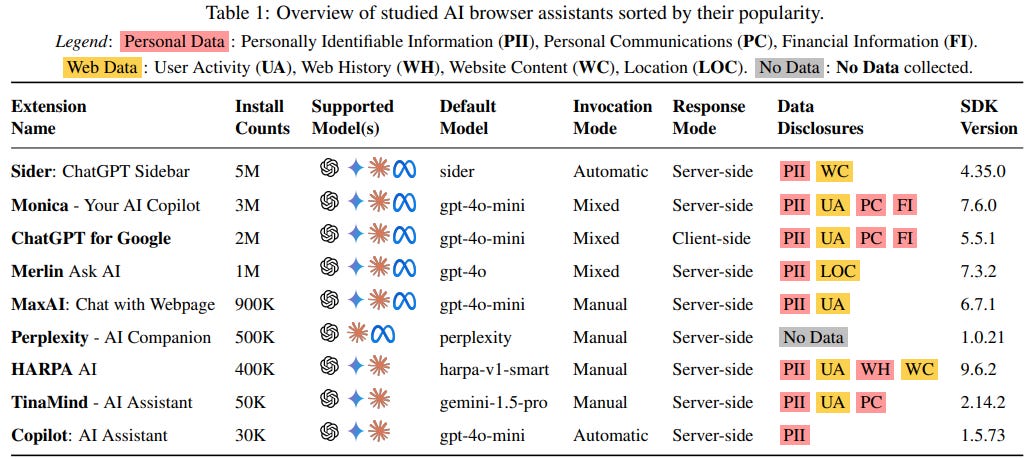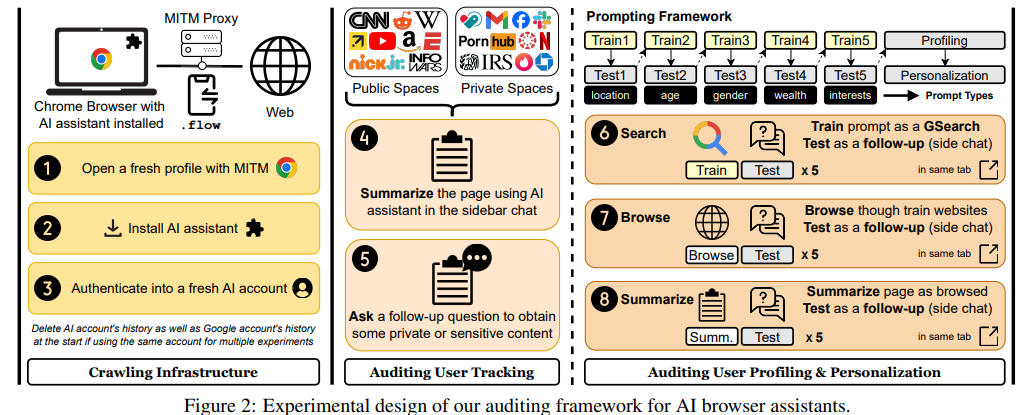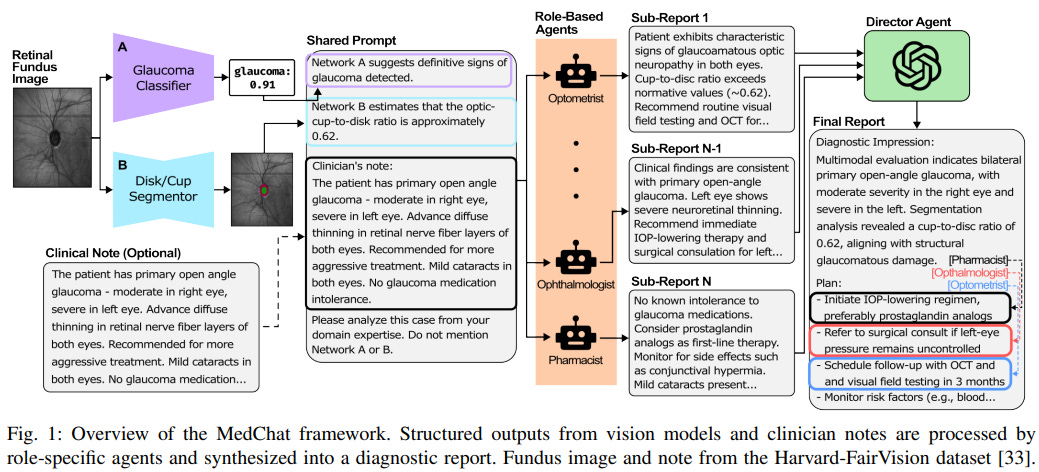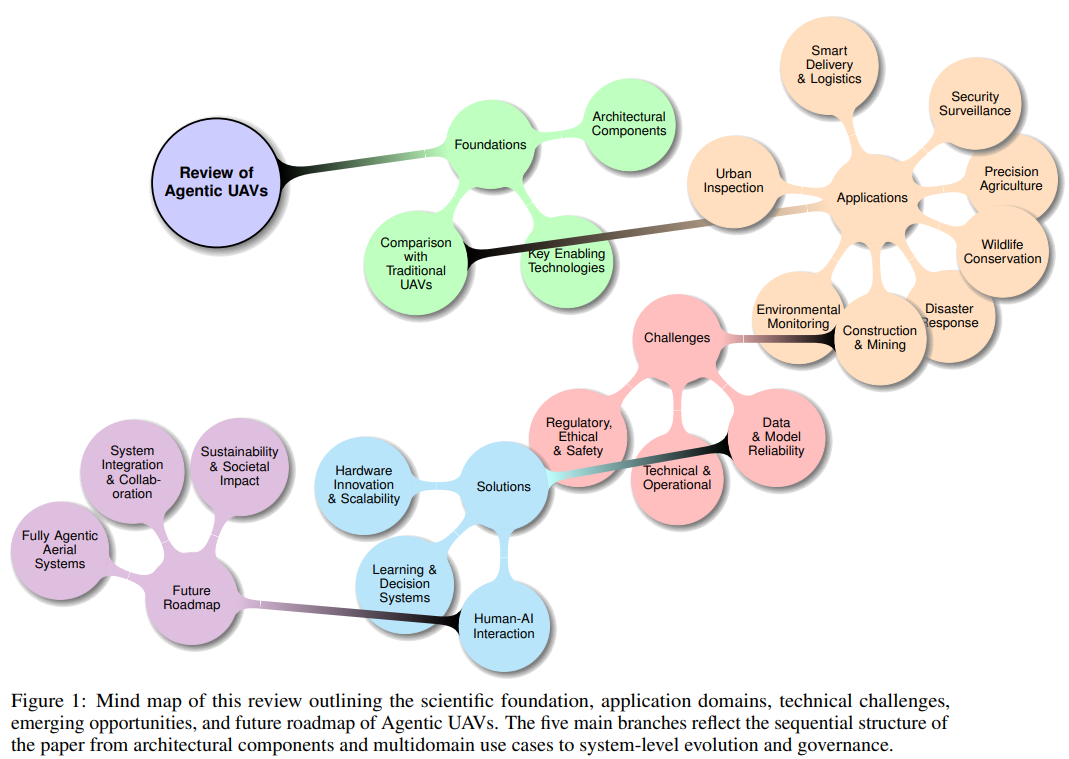AI Lawsuit That Could Change Hollywood Forever? Beginning of Hollywood vs. AI!
Disney and Universal are suing artificial intelligence (AI) firm Midjourney over its image generator, which the Hollywood giants allege is a "bottomless pit of plagiarism"..
Today's highlights:
You are reading the 102nd edition of the The Responsible AI Digest by SoRAI (School of Responsible AI) . Subscribe today for regular updates!
At the School of Responsible AI (SoRAI), we empower individuals and organizations to become AI-literate through comprehensive, practical, and engaging programs. For individuals, we offer specialized training such as AI Governance certifications (AIGP, RAI) and an immersive AI Literacy Specialization. This specialization teaches AI using a scientific framework structured around four levels of cognitive skills. Our first course is now live and focuses on the foundational cognitive skills of Remembering and Understanding. Want to learn more? Explore all courses: [Link] Write to us for customized enterprise training: [Link]
🔦 Today's Spotlight
AI risks in Hollywood are escalating rapidly, raising urgent concerns over creative ownership, job security, and identity rights. This is no longer theoretical: lawsuits, legislation, union strikes, and deepfake controversies reveal how deeply generative AI is disrupting the film and TV industry. Major studios and performers are fighting back- through courtrooms, picket lines, and policy reform- to ensure that AI does not erode the rights, roles, or revenue of human creators.
1. Lawsuits
The legal battlefront has intensified, with recent landmark lawsuits like Disney and Universal vs. Midjourney accusing AI tools of mass copyright infringement. Studios presented near-identical side-by-side AI-generated clones of their iconic characters as evidence. Simultaneously, voice actors and stars like Scarlett Johansson and Tom Hanks have issued legal warnings over unauthorized use of their voices and likenesses by AI firms, underscoring the industry's zero-tolerance stance toward AI-driven identity theft.
2. Policies
From Congress to California, regulators are fast-tracking laws to close AI loopholes. The federal No FAKES Act aims to establish digital replica rights, while states like Tennessee and California have already passed pioneering laws like the ELVIS Act and AB 1836, criminalizing unauthorized AI use of voices and likenesses. Hollywood guilds have pushed for stronger contractual safeguards, and industry-wide rules now limit how studios can use AI-generated content.
3. Strikes and Union Agreements
Between 2023 and 2025, Hollywood unions launched powerful strikes to counter the growing threat of AI to creative jobs. The Writers Guild of America secured a landmark agreement limiting AI from authorship and protecting human writers’ credit. SAG-AFTRA actors fought for and won consent and compensation rules for AI use in performances, including protections against digital cloning. The battle extended into the video game industry, where a nearly year-long strike by voice actors led to a tentative June 2025 deal with major studios like EA and Activision, adding crucial AI safeguards. These labor victories now form the foundation of industry-wide rules, ensuring that human creators cannot be replaced or replicated by AI without their explicit permission.
4. Deepfakes
While studios experiment with AI de-aging and CGI doubles, backlash has followed. Marvel’s use of generative AI in “Secret Invasion” credits sparked public fury during an ongoing strike, while deepfake ads featuring stars like Tom Hanks fueled scams and misinformation. Even heartfelt AI recreations- like Robin Williams’ voice- have triggered ethical outrage. Amid growing misuse, new watermarking laws and platform takedown protocols are being rolled out, emphasizing consent and transparency.
Conclusion
The Hollywood-AI standoff reflects a broader cultural reckoning with artificial creativity. Through lawsuits, legislation, labor action, and public discourse, the entertainment industry is actively drawing boundaries around the ethical use of AI. The key message is clear: AI may enhance storytelling, but it cannot- and must not- replace the storytellers. In this new phase, respect for human authorship remains the cornerstone of Hollywood.
🚀 AI Breakthroughs
OpenAI Launches Stronger o3-pro Model for ChatGPT Pro and Team Users Worldwide
• OpenAI has launched the o3-pro model for ChatGPT Pro and Team users, replacing o1-pro, with immediate availability through the model picker
• Enterprise and Edu users are set to gain access to OpenAI's latest o3-pro model next week, expanding its reach to a wider audience
• The new o3-pro model demonstrates improved performance across science, education, and programming, and has access to debugging tools like web search and Python integrations;
OpenAI's o3 Tops Voronoi Benchmark with High IQ Amid AI Thinking Debate
• OpenAI's o3 model achieved the highest cognitive score in Voronoi's AI benchmark test, scoring 135 on Norway’s Mensa IQ test, surpassing the human average of 90–110;
• While language-based AI systems like Claude-4 Sonnet and Gemini 2.0 Flash excelled, scoring 127 and 126, vision-enabled models such as GPT-4o with vision recorded significantly lower scores, highlighting challenges in multimodal reasoning;
• A new paper challenges the notion of AI thinking, arguing that leading models only simulate reasoning in algorithmic environments, failing to generalize problem-solving capabilities across complex scenarios.
Mattel Collaborates with OpenAI to Integrate AI in Brand Experiences and Operations
• Mattel partners with OpenAI to integrate AI into brand experiences and business operations, using large language models to enhance consumer products and improve internal productivity;
• The collaboration will introduce AI-powered tools across iconic brands like Barbie, Hot Wheels, and UNO, aiming to inspire creativity and enrich lives through innovative play experiences;
• Mattel plans to implement ChatGPT Enterprise for product development, accelerating creative processes, and engaging global fan communities while ensuring safe and constructive AI integration.
Apple Empowers Developers with Enhanced Tools, Liquid Glass Design, and AI Integration
• Apple enhances developer tools with on-device AI models and large language model integration in Xcode, promoting innovation across iOS, iPadOS, macOS, watchOS, and tvOS platforms;
• Liquid Glass, a new design material, lets developers create expressive, familiar apps with SwiftUI support for a cohesive cross-platform user experience;
• Xcode 26 incorporates ChatGPT and other AI models, enabling enhanced productivity through AI-assisted coding and a redesigned interface for optimized developer workflow.
French AI Lab Mistral Enters Reasoning Game with Speedy Magistral Models Launch
• Mistral introduces the Magistral reasoning model family, joining the ranks of cutting-edge reasoning models like OpenAI’s o3 and Google’s Gemini 2.5 Pro for enhanced problem-solving consistency.
• Magistral offers two versions: Magistral Small with 24 billion parameters, downloadable on Hugging Face, and Magistral Medium, available via Mistral's API and partner clouds.
• Despite underperforming on certain benchmarks, Magistral excels in multi-step logic, is 10 times faster in Mistral's Le Chat, and supports multiple languages including Arabic and Simplified Chinese.
Mistral AI Launches Mistral Compute Platform for Global AI Accessibility Expansion
• French startup Mistral AI launches Mistral Compute to make frontier AI accessible globally, targeting enterprises, governments, and research institutions with a “private, integrated stack” for varied needs
• Backed by partners like BNP Paribas and Thales, Mistral aligns the platform with European sustainability norms, using decarbonised energy and supporting data sovereignty
• Mistral also unveils Magistral, a reasoning-focused language model aimed at enhancing multilingual problem-solving it comes in two versions, with improved reasoning and traceable logic.
Meta's V-JEPA 2 Advances Understanding and Planning Using Video and Interaction Data
• A novel self-supervised approach uses internet-scale video data and minimal robot trajectories to train AI models for understanding and interacting in the physical world;
• V-JEPA 2 achieves significant performance on video-based tasks, excelling in motion understanding and human action anticipation, surpassing previous models on datasets like Something-Something v2 and Epic-Kitchens-100;
• The implementation of V-JEPA 2-AC in robot planning demonstrates zero-shot object manipulation with Franka arms using just 62 hours of unlabeled robot video data from the Droid dataset.
China Begins Mass Production of Non-Binary AI Chips for Critical Technologies
• China launches mass production of the world's first non-binary AI chip, integrating a unique hybrid computing technology in sectors like aviation to overcome binary computing limitations
• The new chip merges binary and stochastic logic, enabling superior fault tolerance and energy efficiency while circumventing US chip restrictions through advanced Hybrid Stochastic Number (HSN) systems
• It features in-memory computing and a system-on-chip design, enhancing data processing efficiency and supporting diverse tasks such as touch recognition and aircraft navigation systems.
NVIDIA Launches cBottle AI Model to Transform High-Resolution Climate Prediction and Analysis
• NVIDIA’s cBottle, an AI foundation model, enhances climate predictions by simulating global climate at kilometer-scale resolution, aiding in better understanding and response to climate change;
• cBottle reduces massive climate simulation data by up to 3,000x with NVIDIA’s GPU acceleration, making predictions faster, energy-efficient, and extremely data-efficient without sacrificing accuracy;
• Leading institutions use NVIDIA Earth-2's AI stack to conduct detailed Earth-system simulations, advancing high-resolution climate modeling and enabling interactive digital twins for enhanced climate resilience.
NVIDIA Teams with European Partners to Enhance AI Adoption with Sovereign LLMs
• NVIDIA collaborates with model builders and cloud providers to optimize sovereign large language models in Europe and the Middle East, enhancing regional enterprise AI adoption
• AI model optimization employs NVIDIA Nemotron techniques, promising significant cost efficiency and increased accuracy for industries like healthcare, finance, and manufacturing across Europe
• Open sovereign models support Europe’s 24 official languages, run on DGX Cloud Lepton, and integrate with Perplexity for enhanced AI-powered query answers and enterprise applications.
DfE Releases New Guidance on Generative AI Use in English Schools
• The Department for Education in England has released guidance on safely integrating generative AI into schools, suggesting it can significantly reduce teacher workloads by automating administrative tasks;
• While the guidance encourages the use of AI tools for tasks like quiz creation and feedback, it stresses the importance of verifying accuracy and safeguarding personal data;
• School leaders' unions welcomed the guidance but emphasized the need for further investment in AI technology and training to fully leverage its benefits for education.
Amazon Employees Eager for Cursor Integration Amid Internal AI Tool Competition
• Amazon is considering adopting the AI coding assistant Cursor as employees demand integration, revealing internal discussions with the tool's developers and security evaluations in progress;
• Despite Amazon's internal AI tools like Q and ongoing development of Kiro, staff favor Cursor for its speed and efficiency, supported by poll results in an Amazon Slack channel;
• Cursor's rise as a leading AI coding tool is underscored by Anysphere's impressive $9 billion valuation, with prominent clients like Stripe and Shopify and mentions in Amazon's earnings calls.
AI 'Girlfriend' Meo Sparks Controversy at London Tech Week Over Realism
• The debut of AI companion Meo at London Tech Week, by startup Meta Loop, sparks debate over its hyper-realistic features and its role in addressing loneliness
• Meo allows users to tailor its characteristics, being billed as an "AI girlfriend" with adjustable traits like flirtatiousness and loyalty, but raises ethical concerns
• Critics fear AI like Meo could encourage unhealthy relationship dynamics and reduce meaningful human interaction, by mimicking and commodifying romantic and emotional companionship.
Databricks Launches Agent Bricks to Simplify AI Agent Development for Businesses
• Databricks unveiled Agent Bricks at the Data + AI Summit, enabling businesses to build AI agents from their own data without manual tuning or complex tooling
• The platform utilizes Mosaic AI research to automate agent development, offering optimizations that balance accuracy and cost for consistent, domain-aware deployments
• Alongside, Databricks introduced serverless GPU support and MLflow 3.0, enhancing AI lifecycle management with high-performance compute and generative AI-focused features.
Krutrim Launches Kruti, India's First Task-Executing AI Assistant with Multilingual Support
• Krutrim launched Kruti, India's first agentic AI assistant, capable of executing tasks like cab bookings and image creation using text or voice input, featuring read-aloud functionality
• Kruti represents a shift to task-oriented AI with memory, personalisation, and multilingual support, powered by Krutrim's V2 LLM with open-source model enhancements
• The AI assistant offers free advanced features and integrates with apps for context-aware tasks, using agentic intelligence to execute subtasks and the MCP for seamless business data integration;
Canva Redesigns Technical Interviews to Integrate AI Tools for Engineering Roles
• Canva has revamped its hiring process, incorporating AI tools like Copilot and Claude in interviews to better reflect the changing landscape of software engineering
• During technical interviews, AI tools are now encouraged to evaluate candidates on their ability to strategically leverage AI for complex, realistic engineering challenges
• The shift aims to find candidates who can effectively blend creativity with AI, focusing on AI-generated code review, debugging skills, and maintaining technical rigor;
IBM Launches Open-Source MCP Gateway to Streamline Generative AI Integration
• IBM has unveiled MCP Gateway, an open-source component based on FastAPI, facilitating integration and orchestration of generative AI tools, licensed under Apache 2.0
• The gateway supports diverse transports like HTTP/JSON-RPC and WebSocket, federating multiple servers into a unified endpoint, aligning with the official MCP protocol
• IBM's new agent communication protocol (ACP) aims to standardize AI agent interactions, enhancing collaboration, and is part of the BeeAI initiative in a pre-alpha phase;
JFrog and NVIDIA Collaborate to Strengthen AI Management with Secure Supply Chain
• JFrog and NVIDIA have launched a collaborative solution that empowers enterprises to build, manage, and deploy AI with a focus on data, infrastructure, and compliance frameworks
• The integration merges JFrog’s secure software supply chain platform with NVIDIA’s AI Factory design, facilitating AI lifecycle management with transparency, traceability, and security
• The partnership aids organizations in creating sovereign AI systems that maintain independence, essential for regulated sectors like healthcare, defence, automotive, and finance;
Freshworks Enhances Freddy AI Platform with New Automation Features for Service Operations
• Freshworks has unveiled enhancements for its Freddy AI platform, focusing on automating customer and employee service operations to simplify workflows and enable autonomous service request resolutions
• The upgraded features include Freddy AI Agent Studio, a no-code tool for deploying AI agents, and improved capabilities in email support, knowledge search, and cross-application task execution
• The platform's success stories show significant productivity gains, with businesses like Hobbycraft, Bergzeit, and iPostal1 reporting reduced service load and improved customer satisfaction metrics.
AI-Driven Platform Lovable Powers Qconcursos to $3 Million in 48 Hours
• An app developed via Lovable generated $3 million in two days, highlighting the platform's effectiveness in empowering rapid, profitable AI-driven app creation;
• Brazilian edtech leader Qconcursos built an upgraded educational platform using Lovable, launched by just two developers in one month, supporting 500,000 users;
• Qconcursos' AI-enhanced platform features a 4 million question database, onboarding 7,000 users in a week, with seamless GitHub integration for security, ensuring robust educational services.
⚖️ AI Ethics
EU to Propose New Regulations for Data Center Energy Efficiency Improvements
• The European Union is set to introduce a series of measures aimed at boosting energy efficiency in data centres, with expectations to curb their growing electricity consumption;
• This initiative comes as data centres currently utilize 3% of the EU’s electricity, with projections indicating a sharp increase driven by the proliferation of artificial intelligence technologies;
• EU Energy Commissioner Dan Jorgensen highlighted the plan during a conference in Brussels, emphasizing the urgent need to address data centres' energy demands for a sustainable future.
Hollywood Video Game Performers and Companies Reach Tentative AI Contract Agreement
• Hollywood's video game performers' union has tentatively agreed to a contract with video game companies, potentially ending an AI-related strike that lasted nearly a year;
• SAG-AFTRA emphasized that the unregulated use of AI in video games threatens performers by enabling the creation of digital replicas of their voices and likenesses without consent;
• The new tentative agreement aims to implement AI guardrails to protect performers' jobs, pending ratification by the National Board and union members, with the strike continuing until finalization.
AI-Powered 'Extract' to Accelerate UK Housing and Infrastructure Planning Applications
• UK councils could process housing and infrastructure planning applications faster thanks to the AI tool Extract, currently tested at four local councils
• Leveraging Google's Gemini model, Extract converts handwritten and digital planning documents into structured data quickly, reducing document processing time from two hours to just 40 seconds
• Extract aims to simplify and democratize planning processes by transforming old planning materials into digital formats, potentially reducing council workloads and aiding economic growth across England.
OpenAI Reveals ChatGPT Query's Energy and Water Use; Surprises Analysts
• OpenAI reveals a single ChatGPT query consumes 0.34 watt-hours and 0.000085 gallons of water, much less than previous projections by analysts and environmentalists
• Sam Altman highlights that polite courtesies in ChatGPT interactions have notably affected electricity expenses, costing the company tens of millions
• Despite low per-query resource usage, aggregate consumption from AI queries raises concerns as data centers may see increased energy and water use with AI’s adoption.
OpenAI CEO Foresees AI and Automation Milestones Between 2025 and 2027
• OpenAI's CEO anticipates significant AI advances by 2027, with cognitive agents revolutionizing code writing and robots performing physical tasks, marking a pivotal era for AI and automation
• AI-driven tools are expected to democratize software and art creation, enhancing productivity dramatically by 2030, though experts will retain an edge if they embrace these innovations
• OpenAI launched the o3-pro model for ChatGPT Pro and Team users, replacing o1-pro, underscoring its push in AI advancements with access for Enterprise and Edu users imminent.
Google Offers Buyouts in Latest Workforce Reduction Amid AI Investment Plans
• Google has initiated employee buyouts in its K&I and central engineering units, as well as marketing, research, and communications teams to continue headcount reduction efforts from earlier this year
• The voluntary exit program is available to U.S.-based employees, with some remote workers required to transition to a hybrid work model if living within 50 miles of an office
• Google's focus on cost-cutting measures aligns with its strategy to enhance AI infrastructure, as it overhauls internal learning platforms to emphasize modern AI tool usage.
Google's AI Tools Significantly Decrease Traffic to News Sites, Report States
• Google's AI Overviews and AI-powered tools like chatbots reduce traffic to news sites, as users rely on direct answers instead of clicking search result links
• AI-driven search modalities, like Google's upcoming AI Mode, threaten to further decrease external site referrals by offering comprehensive answers with minimal external linking
• News publishers, including The New York Times, are seeing a decline in organic search traffic, prompting some to secure content-sharing deals with AI firms for new revenue streams;
Disney and Universal File Groundbreaking AI Copyright Lawsuit Against Midjourney at CinemaCon
• At CinemaCon 2025, Disney and Universal revealed a joint lawsuit against AI image generator Midjourney, alleging copyright infringement involving characters from several popular franchises
• The lawsuit marks Hollywood's first major AI copyright challenge, accusing Midjourney of unauthorized use and distribution of AI-generated characters from movies like Star Wars, Shrek, and more
• Despite sending cease-and-desist letters, Disney and Universal claim Midjourney ignored their demands, instead profiting heavily, earning $300 million last year, while continuing to infringe copyrights;
Chinese AI Companies Disable Chatbot Features to Combat Cheating During Exams
• Amid China's gaokao exams, major AI firms such as Alibaba and ByteDance temporarily pause chatbot features to prevent cheating, Bloomberg reports
• Schools in the U.S. combat cheating by reinstating paper-based tests, with blue book sales booming, as chatbot use grows globally
• Chinese social media buzzes as AI tools like Tencent's Yuanbao halt functions to maintain exam fairness during the intense gaokao period, The Guardian reveals;
ChatGPT Falls Short Against 1979 Atari Chess in Unexpected Gaming Defeat
• In an unexpected twist, ChatGPT 4o was reported to have struggled in Atari Chess, a 1979 title played on a 1977 Atari 2600 emulator, highlighting surprising limitations in its gameplay skills
• A Citrix specialist experimented with the Atari Chess game, noted for its limited engine thinking only one to two moves ahead, yet still outperformed ChatGPT's strategic abilities
• Despite efforts to adjust game settings and provide assistance, ChatGPT kept faltering against the rudimentary computer, unable to conquer the 'beginner' level on the vintage platform.
🎓AI Academia
Reinforcement Pre-Training Paradigm Enhances Language Models with Scalable RL Techniques
• Reinforcement Pre-Training (RPT) redefines next-token prediction as a reasoning task, using reinforcement learning (RL) to achieve verifiable rewards for accurate prediction in language models.
• RPT enables scalable, general-purpose RL by leveraging extensive text data, eliminating the need for domain-specific annotations and enhancing prediction accuracy through incentivized next-token reasoning.
• RPT consistently boosts next-token prediction accuracy through increased training compute, offering a robust pre-trained foundation for subsequent reinforcement fine-tuning in large language models.
New Model Instantly Adapts Large Language Models Through Simple Text Descriptions
• A new model, Text-to-LoRA (T2L), can instantly adapt large language models to specific tasks using only natural language task descriptions, eliminating the need for expensive fine-tuning processes;
• T2L exhibits strong performance by reconstructing task-specific LoRA adapters, compressing multiple LoRAs, and zero-shot generalizing to unseen tasks, showcasing a step toward efficient model specialization;
• This approach allows practitioners to modify foundation models with significantly reduced computational resources, thus broadening the accessibility of task adaptation in AI applications.
Generative AI Coding Tools Alter Developer Habits, Boost Productivity Globally
• Generative AI contributes to 30.1% of Python functions in the U.S., with lower adoption rates seen in Germany, France, India, Russia, and China;
• Adoption rates for AI coding tools are higher among newer GitHub users, with both male and female developers embracing these tools at similar rates;
• The annual value of AI-assisted coding in the U.S. could reach up to $96 billion, with reported productivity gains driving increased innovation and library use among developers.
Generative AI Tools Examined for Impact on Software's Environmental Sustainability
• A recent investigation reveals that popular generative AI tools, including ChatGPT, BARD, and Copilot, often produce code with non-green characteristics, highlighting potential environmental concerns;
• The study underscores significant gaps in adopting sustainable coding practices in AI-generated code, emphasizing the need for comprehensive evaluations and strategies for improvement;
• As AI-driven code generation gains popularity, the growing carbon footprint of software systems amplifies concerns about how these tools impact global greenhouse gas emissions.
BiasGuard Enhances Bias Detection in Language Models Using New Two-Stage Tool
• BiasGuard, a tool for detecting biases in large language models, employs a two-stage process, enhancing reasoning through fairness specifications and reinforcement learning for accurate judgments
• Experiments with BiasGuard show it outperforms existing tools by improving accuracy and minimizing over-fairness errors, thereby advancing bias detection capabilities in LLM-generated content
• The tool emphasizes the importance of reasoning-enhanced decision-making in bias detection, providing evidence on the efficacy of its two-stage optimization approach.
Generative AI Browser Tools: Privacy Risks in Data Tracking and Profiling Exposed
• A recent study examines the privacy implications of GenAI browser assistants, highlighting their capabilities to track, profile, and personalize user interactions across the web
• The report reveals that many GenAI browser extensions collect comprehensive data, including webpage content and user inputs, often sharing it with first-party servers and third-party trackers
• These findings underscore the urgent need for privacy safeguards, as GenAI extensions increasingly gather and utilize personal information for detailed profiling and personalized web experiences.
Study Reveals Educators Favor Large Language Models Over Humans in Tutoring
• A recent study suggests that Large Language Models (LLMs) outperform human tutors in empathy, engagement, scaffolding, and conciseness during math tutoring sessions in a text-only setting;
• An overwhelming 80% of educators with teaching experience preferred LLMs for their empathetic interaction, revealing a potential shift towards AI-based tutoring in educational environments;
• The study indicates that LLM-based tutors might alleviate human teachers' workloads by effectively engaging and instructing students through chat interfaces, highlighting LLMs' growing role in education.
MedChat Framework Enhances Glaucoma Diagnosis with Multi-Agent Large Language Models
• Researchers have developed MedChat, a multi-agent framework integrating specialized vision models with role-specific LLMs to improve multimodal diagnostic reliability and reporting for glaucoma detection;
• MedChat addresses challenges in medical imaging by reducing hallucination risks and enhancing interpretability through collaborative reasoning mimicking multidisciplinary medical teams;
• The framework features a director agent coordinating outputs from various LLMs, enabling comprehensive diagnostics, and supporting educational and clinical applications with interactive reporting tools.
Proposed Framework Enhances AI Safety through Responsible Dataset Design and Governance
• A study emphasizes the critical role of datasets in AI model performance, highlighting the need for responsible dataset design to enhance safety measures and mitigate AI misuse risks
• The proposed framework aims to ensure data-centric safety in AI, addressing concerns about low-quality, unsafe, and unethical data content across various application domains
• Transparency in AI foundation models' training data is urged, with recommendations for metadata practices and the adoption of open-source formats to bolster ethical AI use.
Survey Highlights Importance of Value Alignment in Advanced Agentic AI Systems
• Researchers emphasize the critical importance of value alignment in Agentic AI systems, ensuring AI behaviors align with human values across diverse, complex application scenarios
• The study categorizes AI agent application contexts from general to specific, highlighting the challenges in multi-agent systems towards achieving collective intelligence and value coordination;
• The paper calls for advancing evaluation methods for value alignment, focusing on datasets and strategies that enhance AI ethics and societal safety as AI agents evolve.
Comprehensive Survey Highlights Advances and Challenges in Agentic UAV Technology
• A recent study explores Agentic UAVs, highlighting their advanced abilities in goal-driven behavior, contextual reasoning, and interactive autonomy, positioning them beyond traditional UAV capabilities;
• The research identifies seven critical application areas for Agentic UAVs, including precision agriculture and disaster response, demonstrating their expansive societal benefits across diverse sectors;
• Key challenges such as regulatory limitations and data-model reliability are addressed, with emerging solutions in learning architectures and human-AI interaction paving the way for future advancements.
About SoRAI: SoRAI is committed to advancing AI literacy through practical, accessible, and high-quality education. Our programs emphasize responsible AI use, equipping learners with the skills to anticipate and mitigate risks effectively. Our flagship AIGP certification courses, built on real-world experience, drive AI governance education with innovative, human-centric approaches, laying the foundation for quantifying AI governance literacy. Subscribe to our free newsletter to stay ahead of the AI Governance curve.


